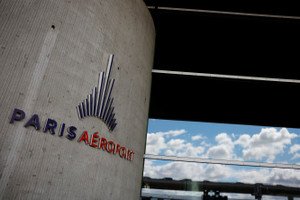Precise Mortgages launches BTL limited edition range with reduced rates and product fees
Published by Gbaf News
Posted on June 15, 2018
3 min readLast updated: January 21, 2026

Published by Gbaf News
Posted on June 15, 2018
3 min readLast updated: January 21, 2026

The specialist lender Precise Mortgages has launched a new 5- year Fixed Rate Buy to Let range with reduced rates and product fees to support brokers and customers.
The new limited-edition products are available at 3.49% with a 1.5% product fee and 3.59% with a 1% product fee on LTVs of up to 75%.
They are available to landlords applying as individuals or through limited companies and on portfolios comprising houses in multiple occupation (HMO) demonstrating Precise Mortgages’ focus on responding to market changes.
Precise Mortgages believes the 5-year fixed rates are ideal for low yield and high value properties above £300,000 helping landlords get the loan size they want with the assessment rate based on the pay rate.
Syndicated research* for the specialist lender shows the highest yields across all types of property are currently available on HMO at 7.1% but that yields vary across the country with landlords in the North West achieving an average 6.7% compared with 4.8% in Central London where property values tend to be higher.
Alan Cleary, Managing Director of Precise Mortgages, said: “There is increasing demand for products targeted to address particular issues faced by brokers and landlords which is a major part of our role as a specialist lender as the new range demonstrates.”
Precise Mortgages offers an extensive range of Buy to Let products and full details are available at www.precisemortgages.co.uk
The specialist lender Precise Mortgages has launched a new 5- year Fixed Rate Buy to Let range with reduced rates and product fees to support brokers and customers.
The new limited-edition products are available at 3.49% with a 1.5% product fee and 3.59% with a 1% product fee on LTVs of up to 75%.
They are available to landlords applying as individuals or through limited companies and on portfolios comprising houses in multiple occupation (HMO) demonstrating Precise Mortgages’ focus on responding to market changes.
Precise Mortgages believes the 5-year fixed rates are ideal for low yield and high value properties above £300,000 helping landlords get the loan size they want with the assessment rate based on the pay rate.
Syndicated research* for the specialist lender shows the highest yields across all types of property are currently available on HMO at 7.1% but that yields vary across the country with landlords in the North West achieving an average 6.7% compared with 4.8% in Central London where property values tend to be higher.
Alan Cleary, Managing Director of Precise Mortgages, said: “There is increasing demand for products targeted to address particular issues faced by brokers and landlords which is a major part of our role as a specialist lender as the new range demonstrates.”
Precise Mortgages offers an extensive range of Buy to Let products and full details are available at www.precisemortgages.co.uk
Explore more articles in the Top Stories category











